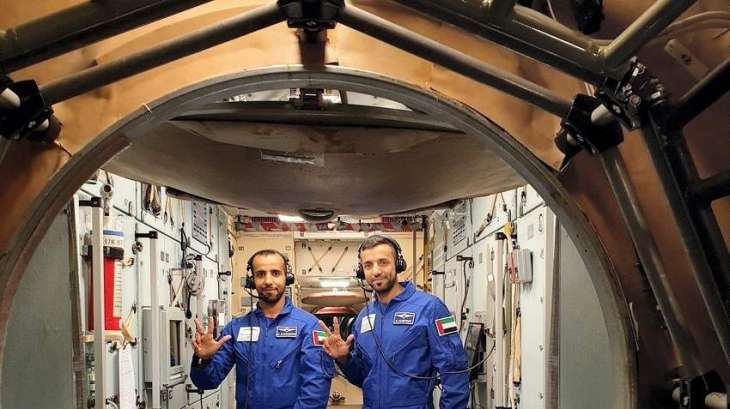Two citizens of the United Arab Emirates (UAE), Hazza Mansouri and Sultan Niyadi, one of whom will become the first ever UAE astronaut to fly to the International Space Station (ISS), will be trained for the "winter survival" in the Moscow Region, Russia's Gagarin Research & Test Cosmonaut Training Center (GCTC) said in a statement on Tuesday
MOSCOW (Pakistan Point News / Sputnik - 22nd January, 2019) Two citizens of the United Arab Emirates (UAE), Hazza Mansouri and Sultan Niyadi, one of whom will become the first ever UAE astronaut to fly to the International Space Station (ISS), will be trained for the "winter survival" in the Moscow Region, Russia's Gagarin Research & Test Cosmonaut Training Center (GCTC) said in a statement on Tuesday."In total, this time, seven crews will participate in the 'winter survival' [program] organized by the GCTC. Roscosmos cosmonauts Anatoly Ivanishin, Ivan Wagner, Nikolay Tikhonov, Andrey Babkinas ... NASA astronaut Thomas Marshburn, and UAE representatives Hazza Mansouri and Sultan Niyadi are undergoing the space flight training at the GCTC," the statement read.
The statement noted that all crew members taking part in the "winter survival" exercise would complete theoretical and practical tasks on the courses of action needed to be taken after landing a spacecraft in extreme conditions using the equipment available on board.
Under the terms of the training, astronauts must take off their spacesuits and change into a set of clothes kept inside of a landing vehicle. Afterward, they will have to go outside and build several types of shelters, tune radio communication, provide first-aid to injured people and communicate with the search and rescue team.
In December, Roscosmos head Dmitry Rogozin said that a UAE astronaut's flight to the ISS would take place in 2019. Initially, this flight was scheduled for April 2019 but was postponed due to the Soyuz MS-10 manned spacecraft's failed launch in October.




